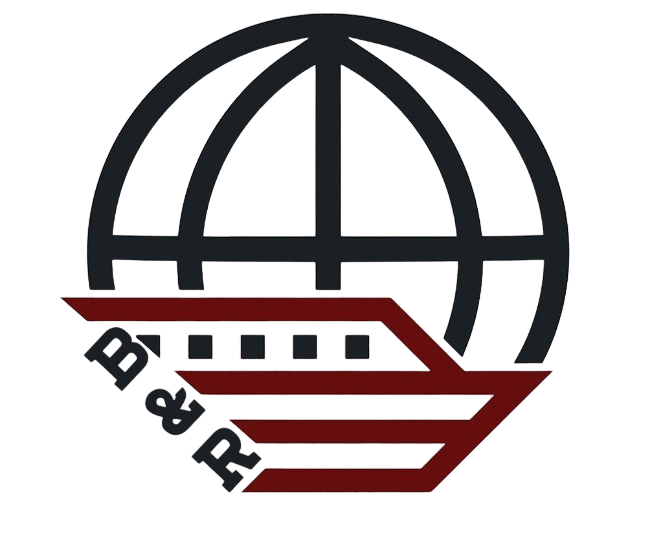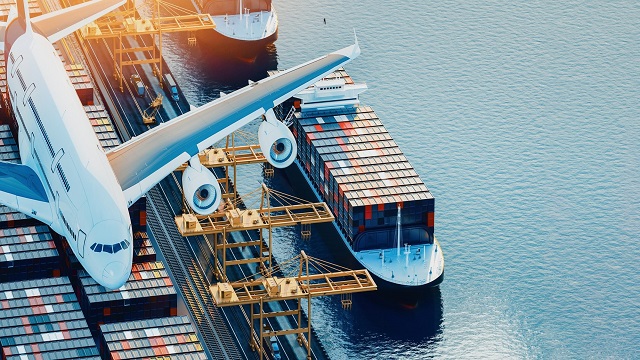cold chain logistics services, cold chain logistics services،With the rising pharmaceutical industry and vaccine manufacturing around the world, as well as people’s awareness of the importance of natural food content, there has been a global trend toward the trade of natural products, resulting in an increase in temperature-sensitive products. This has driven the logistics industry to develop services, such as cold chain logistics services, that avoid temperature fluctuations during the shipment of delicate cargo.
Cold Chain Services
It is a temperature-controlled supply chain that is used to match the temperature of temperature-sensitive products from the time they are manufactured until they are utilized. It contains a variety of locations where subsidized chillers that can maintain the required temperature range are stored and distributed. For certain businesses, guaranteeing that the finished product is in good condition and that it is delivered to the customer in a non-corrupt manner can be more than half the battle, so it’s more complicated than it appears.
The cold chain does not affect transportation, but it does affect all other processes, including purchasing, supply, transportation, storage, and delivery. Some medications, for example, require a fixed temperature range from the creation to usage, so if the temperature falls outside of this range even for a short period, the drug loses its potency and becomes unusable. Temperature-sensitive items must therefore be stored at stable temperatures and have their use time defined.
Because this service entails controlling the temperature throughout the period of its transfer, it also requires properly completing other operations such as correct packaging, transportation, transit methods, timeliness, and shipment. To ensure that the goods are delivered to the ultimate consumer in perfect condition

The Importance of Cold Chain Services
There are many reasons why cold chain logistics is so important, and many people are unaware of them. However, business owners, particularly producers of goods that necessitate a constant temperature, such as farm owners and suppliers of seafood, dairy products, and frozen meat, are aware of these reasons. Some products can withstand temperature changes, while others spoil due to a slight deviation in the temperature indicator. Thus, what we buy in stores or pharmacies and in good quality requires numerous steps for its arrival, during which the cold chain works to keep this product.
Many people are put in danger when these delicate products are exposed to temperature fluctuations. since flavor and quality vary and the overall safety of the product is jeopardized. Similarly, one of the most prevalent of these compounds is vaccines, with the global pharmaceutical industry including more than 15% of sensitive medicines, a figure that is expected to rise in the future years, including biomolecules that require special handling.
There will be numerous wastes resulting from the corruption of temperature-sensitive items without the cold chain, which is a waste of resources, especially in the third world, as the cold chain can help eliminate these distractions and provide more resources to such countries. The cold chain was recently used in the Krona pandemic to keep the vaccine cold and transport it to individuals all across the world. As a result, the presence of the cold chain is required not only to deliver vaccines or medications but also food and many other products that have become a big part of the electronic market.
Cold chain service challenges
Cold chain service companies are under greater pressure to ensure that items are kept at suitable temperatures without harm as the production of temperature-sensitive commodities continues to rise. With more factors directly influencing the cold chain from worldwide markets, as well as low costs and numerous tactics, resource limits, or WHO-established legislation, cold chain management requires increased precision to sustain sensitive items.
However, similar to any industry, there are other difficulties that have major implications for public health, the financial system, and the economy. Among the most typical issues is a defective freezer that cannot withstand the set temperature, resulting in a rotten product. This works to fade your brand and reduce your profit margin to the bare minimum. So, after resolving this issue, look for airtight freezers with doors that return to the closed position after the opening.
Another common issue is the condensation process inside the radiator since moisture can be formed if the temperature fluctuates, resulting in slippery surfaces that may interfere with worker operations. To alleviate this issue, utilize fans to generate air to help regulate humidity levels and airflow.
When products are loaded and branched, they may be subjected to excessive heat after being exposed to a heated environment. This compromises the quality of foods, medications, and other temperature-sensitive products.
How does the cold chain system operate?
The third-party logistics company is relieving the enterprises involved in the chain of execution of this burden. The key to the cooling chain is to combine and control the various aspects. While cold chain services have specialized knowledge that is geared toward transporting temperature-sensitive goods, there is still a lot of information that needs to be verified and observed regarding regional regulations, environmental factors, and the amount of time of the distribution that comes from many sources. However, with the right application, enterprises can have a conceptual understanding of shipping networks, dispersion, and various modes of transportation. As a result, the choice is more accurate and yields better outcomes. Companies can also determine the risk associated with each specific cargo by gathering data. This gives transportation planners the flexibility to choose more nimble options for modes of transportation, shipping windows, and equipment.

Selecting the Best Logistics Approach for the Cold Chain
As with many decisions made by executive logistics managers, he must provide accurate answers to a number of questions in order to gather the information necessary to make a strategic choice, such as what is the product? And what financial capacity does the business have to ensure a secure transfer? Contains the shipment have any risks? Customs, weather, and global disasters all have an impact on how successfully a shipment is transported and delivered to the consumer without damage.
conclusion
Following our discussion of the state of the global economy and the significance of cooling chain services, it is now clearer to predict how important cold chain services will be in the coming decades as the number of product markets that are impacted by temperature variations rises. I believe that now is an excellent moment to enter this sector and expand your business by partnering with a provider of cold chain services.


